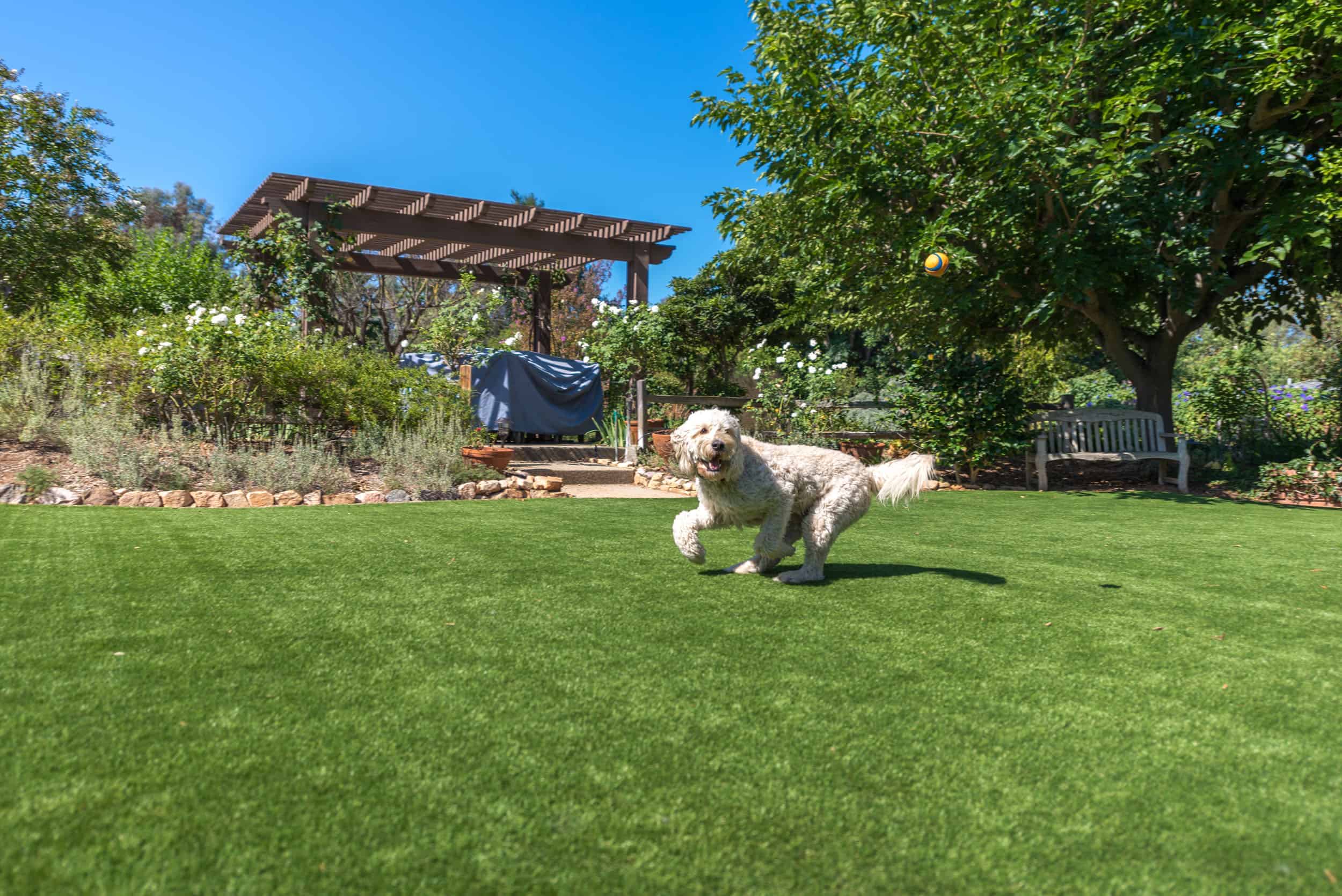Ways That Artificial Grass For Dogs Solves Backyard Problems In Lakeside

- Dogs love to dig and romp, leaving natural grass lawns full of unsightly holes and brown patches. Artificial grass is incredibly durable and can withstand even the most enthusiastic of dogs. Made from high-quality synthetic materials, it resists tearing and is not easily damaged by digging or rough play. This means your backyard will stay pristine, no matter how much your furry friend loves to play.
- One of the most challenging issues dog owners face with natural grass is mud. After a rainstorm or with regular watering, natural lawns can quickly become a muddy mess, which invariably gets tracked indoors by your pet. Artificial grass has a highly efficient drainage system, allowing water to pass through without turning your yard into a mud pit. This feature ensures that your dog can go outside anytime without the dread of muddy paws after.
- Maintaining a natural lawn is a time-consuming task that involves mowing, watering, fertilizing, and weed control. For dog owners, it’s even more laborious as they combat the additional stress pets place on the grass. Artificial grass requires minimal maintenance. There’s no need for mowing or watering, saving time and resources. A simple brush up now and then to remove debris and occasional rinsing to clear any waste is all that’s needed to keep it looking fresh and clean.
- Many dog owners are rightly concerned about the use of pesticides and fertilizers on natural grass and how these chemicals might affect their pets. Artificial grass presents a non-toxic alternative. Most high-quality artificial turfs are made from materials that are safe for pets. They do not require the use of harsh chemicals to maintain their appearance, ensuring your dog has a safe space to play.
- Dogs don’t have an off-season. They will play outside year-round, regardless of the condition of your lawn. While natural grass can wither and die during the cold months or dry out in the heat of summer, artificial grass remains green and inviting throughout the year. This means your backyard will maintain its aesthetic appeal no matter the season, adding value to your property and enjoyment to your pet’s outdoor time.
FAQs
Is Artificial Grass Safe For My Dog To Use As A Restroom?
Yes, artificial grass is safe for dogs to use as a restroom. The materials used in artificial turf are typically non-toxic, and the efficient drainage system allows for easy cleanup and maintenance.
How Do I Clean Artificial Grass If My Dog Has An Accident?
Cleaning artificial grass is straightforward. Simply pick up any solids and rinse the area with water. For a deeper clean, you can use a mild detergent or a cleaner specifically designed for pet odors and stains on artificial turf.
Will My Dog Try To Dig Up The Artificial Grass?
Some dogs may initially be curious and attempt to dig at artificial grass. However, high-quality artificial turf is highly durable and difficult for dogs to damage. Proper installation and a brief period of training typically discourage this behavior.
Conclusion
Artificial grass for dogs offers an array of solutions to common backyard issues faced by pet owners. From its superior durability and maintenance-free nature to its non-toxic safety and year-round beauty, synthetic turf could be the ideal choice for creating a pet-friendly outdoor space. It’s a practical, attractive alternative that lets you and your pet enjoy the backyard without the hassle of upkeep or the worry of pet-induced damage. As such, artificial grass isn’t just solving problems—it’s enhancing the quality of outdoor life for dogs and their owners alike. For more information, contact Artificial Grass Lakeside at (619) 493-4141.

